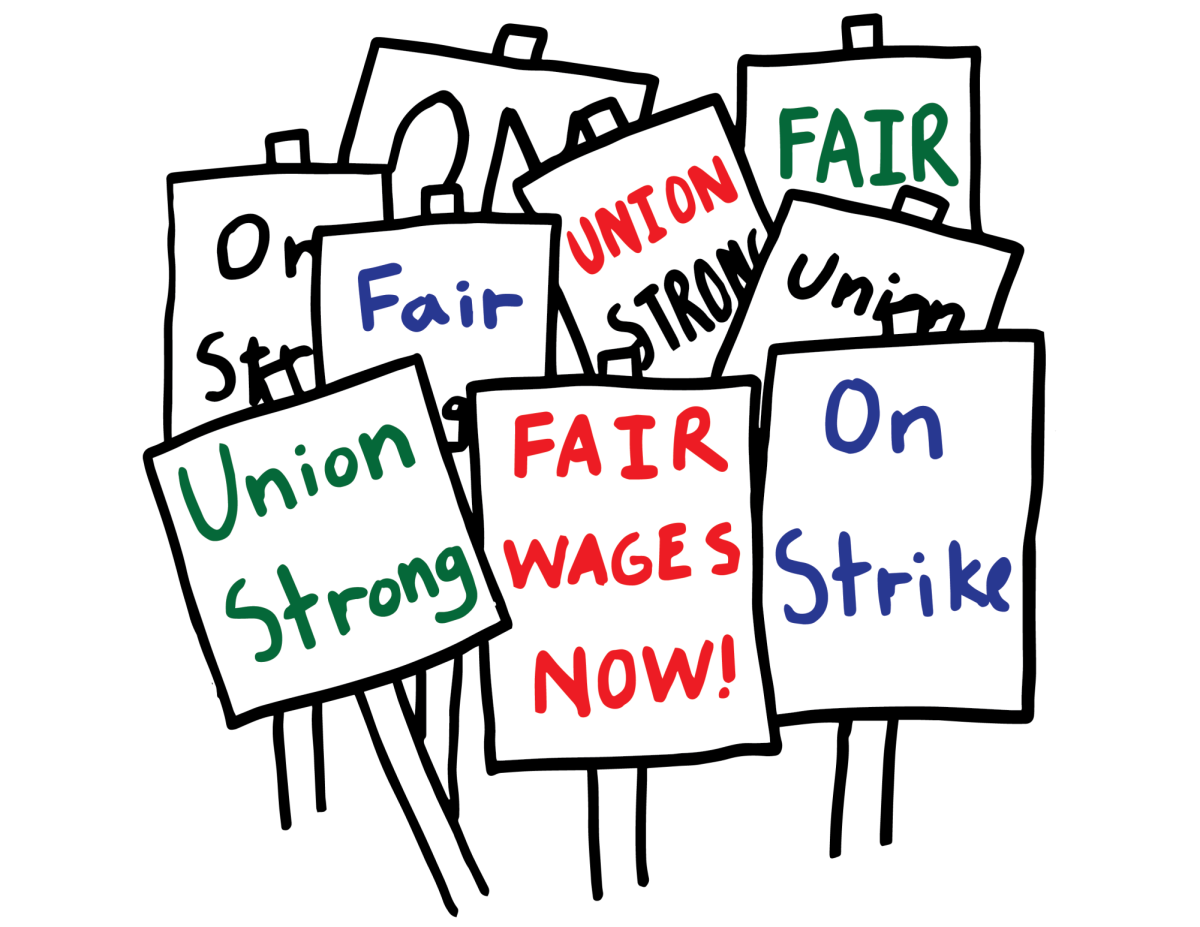The Writers Guild of America (WGA) and the American Federation of Television and Radio Artists (SAG-AFTRA) pronounced their alliance against Motion Picture and television producers in a strike following the expiration of the WGA contract. On the technological frontier and at the heart of these negotiations, artificial intelligence (AI) created an ill static between the guild, the studio, and the writers.
Many of the proposals by the writers guild–for fair pay, for “sustainable careers,” for finer provisions–were overlooked. With a 97.85 percent strike authorization from the guild members in support of this agenda, WGA declared their walk to the picket line May 1.
After 148 days of persistent protesting, 148 days of uncompensated unemployment and 148 days of paused or canceled productions, the writers’ strike effectively ended the morning of Sept. 27 as a tentative deal was reached.
Dale Nash, a senior administrative assistant in the computer science department at Seattle University, weighed in on how AI may be included in the credits we see on our screens.
“I suspect AI can be used very effectively by producers to feed it past scripts and say ‘I want a scene like this,’ and I think it’s very able and ready to do that,” Nash said.
In conversation with Professors Shiny Abraham (SA) and Mehmet Vurkaç (MV) of engineering at Seattle University, on the fast growth of AI—and the pitfalls of such expedited development.
MV: “I studied machine learning for my Ph.D., but I had to do it just before the Deep Learning Revolution… This huge change occurred and right after I was done, everything that I learned was valid but everything I worked on wasn’t.”
HM: “So, already, you’ve seen the advancements of technology and how quickly it’s adapting to your workplaces.”
MV: “It’s very fast. And it only takes small but great ideas for things to move. What’s behind all the GPT, large language models, a lot of the current generative AI is a thing called the attention mechanism and it mimics how our eyes and ears, and so on, how they have selective attention. So, the neuro net is trained to learn how to pay better attention to certain things and lesser attention to certain things. It was that idea that made us go from the most recent sets of deep learning, to this new place… In the case of actors who are being told you’re going to get one day’s pay to be scanned in 3D and we’re going to use your likeness forever, that’s not a great use of AI. When people are using something that takes away from the livelihood of others, I hope we don’t support that.”
SA: “Yes, I agree with Professor Vurkaç. I think that anytime it comes to the question of the survival of workers and the creation of sustainable careers, I think the preference should be for human life rather than a money-making business… The strike that’s going on right now has less of an impact than when the writers had with the strike in 2007 because the last time there was a strike there was less content for people to view, but, right now, we have streaming services with so much content that people not closely associated do not feel an impact.”
HM: “That’s a really great point. We can’t feel the detriments of the strike just because of how much content is getting thrown at us every day with streaming services like Netflix and Apple. Do you think this is a problem, more so, for studios and the writers guild to be exempt from the public?”
SA: “I hope not. I hope there’s more awareness of what’s going on. If you asked me this question a few months back, before the strike, I would say that I wouldn’t think that AI models can create content that could mimic human emotion. But then, I read this article on how scientists at MIT media labs have taught a machine how to manipulate human emotion and that’s a technology they feel could create more content for movies and television, so the concern is definitely valid. This could go anywhere, and I’d rather it go in the favor of people that consider this their career.”
AI is becoming incredibly capable of replicating convincing material, skilled in producing digital doubles without the need of hire or the need of a human body. Depriving the writer of his writing, the actor of his acting. It’s an unsettling inevitability seen already through deepfakes, motion capture, voice generators and GPT.












